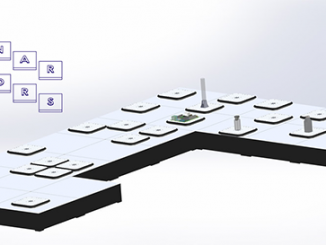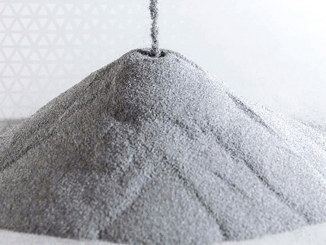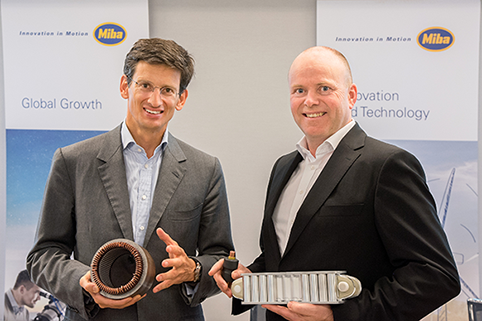
Miba AG, the Austrian-based manufacturer of sintered metal parts and a leading developer of soft-magnetic powder pressed parts for electrical drive systems and traction engines, showed strong financial results again in fiscal year 2018–2019, moving closer to its goal of become a 1 billion EUR per year enterprise.
From its product development efforts, Miba reports that in prototypes for several e-vehicle projects its new powders are enabling the electric engines to carry the magnetic flux in three dimensions and result in power density 30% greater than traditional machines.
During the 12 months which closed January 31, revenue rose EUR 97 million to EUR 985 for an 11% gain over the previous year, taking the technology group another step closer to its revenue target of one billion euros set out in the company’s “2020 Dynamic Evolution” strategy.
Miba’s annual revenue has more than doubled since 2010, rising by over half a billion euros. The company generates 51% of its revenue in the industrial goods business and 49% in the automotive segment, a mix which as helped it combat slowdown on the automotive side.
“The past fiscal year saw challenging market conditions in the automotive segment and showed once again that, with its very broad product portfolio and its focus on a number of regional markets, Miba is very well prepared to manage volatility in individual market segments,” says F. Peter Mitterbauer, CEO (Pictured above to the left of Markus Hofer, CFO).
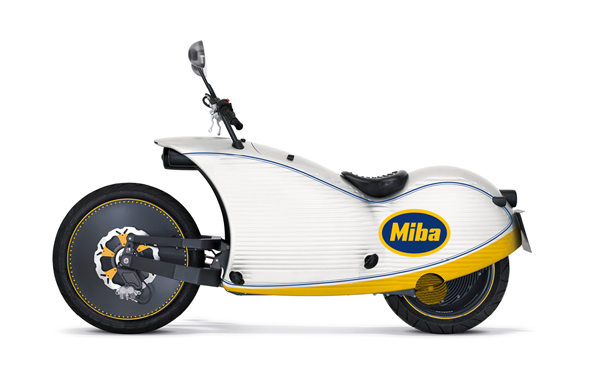
In line with its vision to place greater focus on e-mobility, the company’s development team at Miba Sinter Austria is pursuing a promising avenue with soft-magnetic powder pressed parts for electrical drive systems and traction engines. The technology is being tested in several new designs including a prototype engine for the Johammer electric motorcycle, a cargo bike and a Skoda Roomster.
“Our specific material and the special design make these engines smaller, lighter and significantly more powerful than other electric drive systems,” according to Christian Sandner, senior application engineer.
The Miba team developed new electric engines which use soft-magnetic components made of pressed soft-magnetic composite (SMC) powder, allowing them to achieve a 30% higher power density than traditional machines.
The special feature of the SMC material is that the individual particles of powder are coated with an electrically insulating layer. Due to the materials used, these electric engines possess the ability to carry the magnetic flux in three dimensions, the key to improving performance. The engines currently in advance development range in power from 600 W to 40 kW, and more is possible, says Miba.
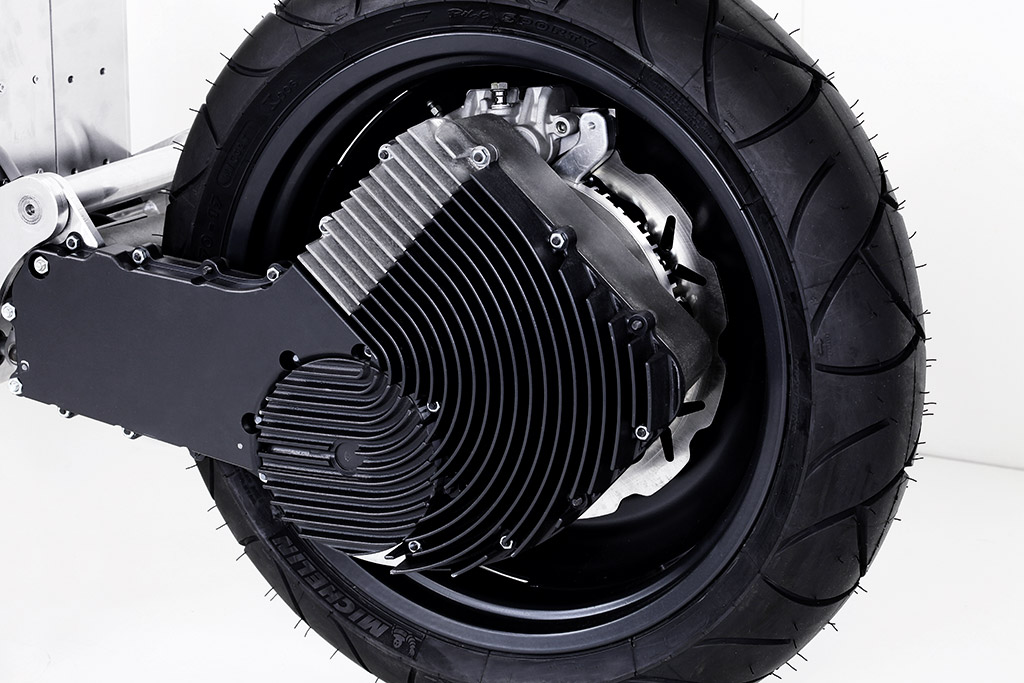
In the Johammer motorcycle, the electric motor and controller are integrated into the rear wheel for optimal performance and low maintenance, while an innovative battery pack is mounted low in the center of the chassis.
Miba’s investments reached an all-time high of EUR 128 million in the past fiscal year. The group invested EUR 87 million in property, plant and equipment and intangible assets and EUR 41 million in research and development. Spending on training and education for employees rose by almost 20% to EUR 2.6 million. “By investing in our plants, in research and development and in our employees’ expertise, we are creating the basis for our further growth,” explained Mitterbauer. “Thanks to our financial stability and our independence as a family-owned company, we are best placed to invest over the long term and with a steady hand. This enables us to safeguard existing jobs and create new ones.” In doing so, Miba is maintaining its dual approach of both growing its existing business and leveraging the opportunities arising from electrification and digitalization., he said.
The company is currently building three new plants in China and India to accommodate growth in Asia. In China, Miba will invest around EUR 100 million over the five years between 2018 and 2022. In total, it plans to invest more than EUR 100 million in e-mobility in the period to 2025.
Overall, its product portfolio includes sintered components, engine and industrial bearings, friction materials, power electronics components and coatings that are used around the world in motor vehicles, trains, ships, aircraft, power plants, refineries, compressors and industrial pumps. Headquartered in Laakirchen, Austria, the company now has 26 sites and 7,400 employees worldwide.
For more information, visit: www.miba.com/en/miba/


